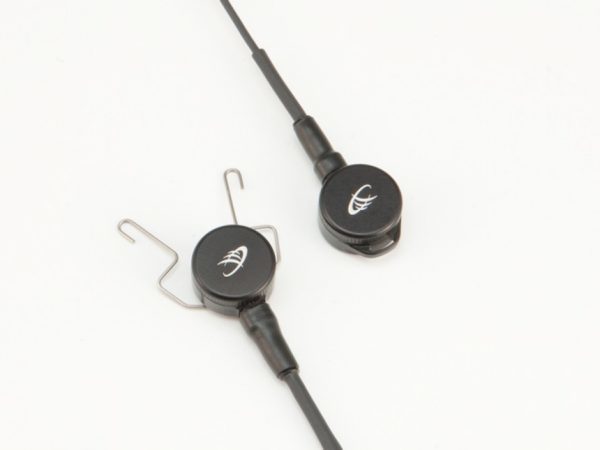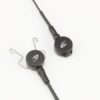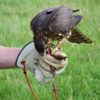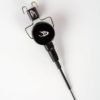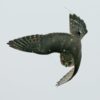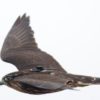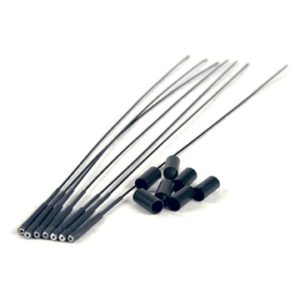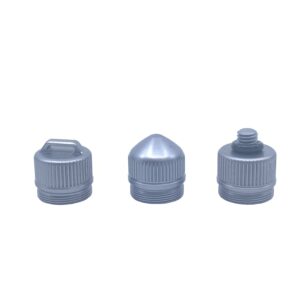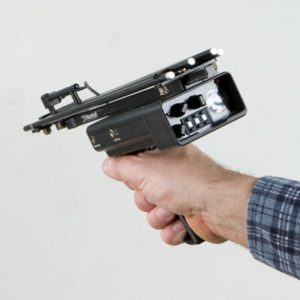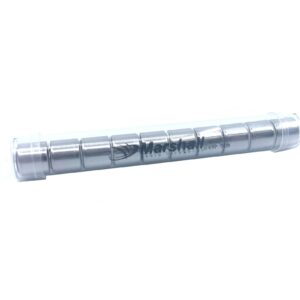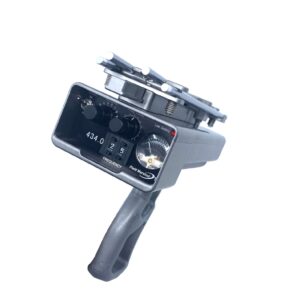Description
SMALLEST SIZE, LIGHTEST WEIGHT
The Micro is our smallest transmitter design, weighing only 3.5 grams with the tiny 1225 3v lithium coin-cell battery installed. Yet its range exceeds that of most transmitters twice or three times its size and weight.
MICRO SIZED TAIL-PIECES AND INSTALLATION TOOL TO MATCH
The small tail feather piece is used with the matching tail-piece installation tool to quickly install the tail piece onto the deck feather of your bird. The process is quick and simple causing very little stress to the bird.
MOST POWER POSSIBLE FROM TINY BATTERY
Using the very small and light lithium coin cells, the Micro transmitter is engineered to radiate the most power possible while squeezing the battery’s reserves most efficiently. At room temperature, the Micro will transmit continuously for 30 hours of normal use (30 one hour flights, one month) before telling you to change the battery with a double beep every tenth pulse. After that, the battery runs about 70 more hours for a total time of about 100 hours. Using the Mag switch to Tap on and off for each flight, this might translate into one or two months of normal use per battery change, while always maintaining a safety margin of three days to look for a lost bird.
You can leave your battery in the Micro for up to six months. The transmitter keeps track of cumulative transmission time to estimate remaining battery life, even when not transmitting.
If you are getting an early double beep warning, it is possible that the memory inside the transmitter was not reset when the battery was last changed. To reset the memory, simply either
a) turn the transmitter on with the magnet before changing the battery or
b) short the contacts every time a battery is changed.
This will assure a full reset of the battery timer, and will give you the correct run-time before the double beep occurs.
ANTENNA
Both the standard (thin) and heavy (thick) antennas are available for the Micro, made with the tiny aluminum ferrule attachment.
LEG OR TAIL MOUNT OPTION
If you look closely at the first picture in the Image Gallery, you’ll see there are two body designs: 1) the leg mount case with a tiny Bewit attachment loop at the top and a smooth back. This makes the Leg Mount version is also ideal for neck mounting, and 2) the tail mount case that has three tiny posts on the back to hold the tail spring and also make it field replaceable.
To keep weight to the absolute minimum, we make them one way or the other.
CAN ALSO BE USED ON LARGER BIRDS
Can be used as a tail mount for larger birds. Although designed for use on the very smallest of birds, all of us want to have as little weight as possible at all times, as long as there’s not a significant sacrifice in power. It’s our opinion that the Micro will, over time, become the preferred tail-mount option for this reason.
WORKS IN COLD TEMPERATURES
With a new battery, the Micro will operate down to extreme cold temperatures (-40F). However, the battery in the Micro is very small, and its ability to supply energy to the transmitter is limited at these temperatures (thus reducing run time). We recommend using a new battery every day when flying in extreme cold temperatures.
A GREAT NEW OPTION FOR LICENSED HAMs
For American (US/Canada/Mexico) Customers who have a HAM License, we can make sure you comply with the requirements of using this band by programming your Call Sign into the transmitter. Your Call Sign will be broadcast in Morse Code at startup and once every ten minutes as required by Law.
If you do not have an Amateur Radio License, you might be surprised how easy it is to obtain one. Pass a simple test, for which you can study all the answers in advance, pay ten dollars and with and 80% passing grade, you have a ten-year license, new knowledge about Radio Telemetry and the authorization to use the non-commercial bands (such as 433-434) not only for tracking but communication and emergencies.
For those wanting to find out what’s required to get a HAM License, here’s a great place to start: How to get your Amateur Radio License

